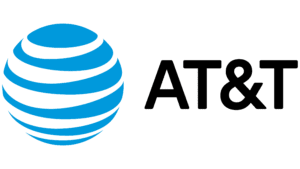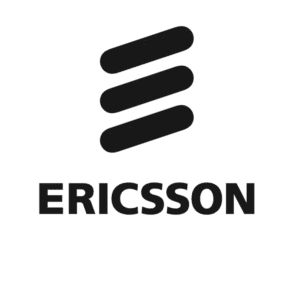All over the globe, enterprises in various industries are developing enterprise 5G infrastructure and services to meet new operational use cases.
Especially as companies begin to tap into the Internet of Things (IoT), artificial intelligence (AI), and other smart devices and services, enterprise 5G solutions offer the connectivity, bandwidth, and speed necessary to make these advances possible.
If your enterprise is looking for new ways to optimize your mobile network for internal operations and external initiatives, use this guide to better understand enterprise 5G and what the top providers offer to differentiate themselves in this emerging market:
Also read: The Mobile Device Management Market (MDM) Market
An enterprise 5G network, sometimes called a private 5G network, consists of many different pieces. Private 5G networks cannot offer enterprises the ultra-low latency they’ve come to expect from 5G unless enterprises invest in the following services, equipment, and other key features of an enterprise 5G network:
Enterprises have to purchase dedicated spectrum in order to set up and run an enterprise 5G network. This spectrum gives access to a set of certain wireless frequencies that keep the network privately running.
Mobile service providers typically set up all of the necessary equipment for a public network, but in an enterprise 5G network, the enterprise is responsible for setting up its own hardware and equipment. Equipment that enterprises must purchase from infrastructure and hardware providers includes base stations, mini-towers, small cells, and next-generation wireless 5G radio antennas.
5G only works effectively with mobile devices that have been designed for 5G service. But these kinds of devices are not only necessary so users can actually use the modern network; 5G and edge devices support the operations of the 5G mobile network as a whole. These edge devices distribute and offset centralized bandwidth needs, which results in lower latency for all devices running on the network. Most enterprises need embedded modules and nodes in their facilities for 5G to work, but mobile devices like smartphones, routers, and gateways offer additional points of connection and data transmission.
Setting up enterprise 5G is expensive, complex, and time consuming. Few companies have enough internal knowledge to get their network deployed on their own, so they must rely on third-party partners and systems integrators. These external 5G expert teams focus on proper configuration, security concerns, and industry-specific requirements to incorporate into the private spectrum.
Enterprise 5G networks involve more mobile devices and endpoints with varying levels of native security. As a result, companies can fall into serious security and regulatory compliance problems if they don’t add support tools and features to their new network. Policy management, network management, identity and access management (IAM), and other user- and device-level security solutions are particularly helpful in this area of 5G implementation.
More on user-level mobile management: The Mobile Identity Management (MIM) Market
Enterprises, especially ones that depend on a smart assembly line and real-time software processes, are turning to enterprise 5G because of the network’s bandwidth, low latency, and speed that support a growing number of smart devices. Enterprises that make the costly investment in 5G for business can realize several key benefits:
The latest smart technologies cannot be developed, maintained, or deployed without the processing bandwidth and low latencies that 5G offers. Although 4G LTE has supported some of these innovations, enterprises have been able to innovate more in areas like smart factory infrastructure, robotics, and IoT devices for operational and end user use cases.
A private 5G network blocks public traffic from interfering with business operations and network performance management. Especially for companies that are innovating in IoT and AI/ML, dedicated bandwidth is important for quick and accurate big data transmissions. With enterprise 5G, network administrators can focus on optimizing the enterprise traffic they expect to see on the network. With more focus on user access management and authorization, network security professionals can also better identify anomalous traffic and behaviors.
Public 5G is not yet available in most areas of the world, but enterprise 5G can be made available anywhere a company is willing to invest in the appropriate spectrum and equipment. This means that employees and operations can benefit from the reliability, high data transmission rates, and scalability of 5G, regardless of where they’re working.
The latest 5G and IoT devices cannot function without the networking capacity of 5G. 5G is the first mobile network that’s truly capable of processing the large sums of data that IoT can produce, both on the cloud and the edge. These devices can make working processes smoother, offer new products and services to customers, and lead to technologies that change how the world works, like autonomous vehicles.
Also read: The Internet of Things (IoT) Edge Computing Market
5G-powered devices and equipment also present opportunities in the area of global sustainability. Smart energy solutions, such as smart irrigation systems, lights, and assembly lines, can help companies use energy more efficiently and decrease their carbon footprint.
Learn more from Enterprise Networking Planet: The Role 5G Can Play in Global Sustainability Efforts

AT&T is a top mobile service provider in enterprise mobility. The company is one of the leading researchers in the enterprise 5G space and is focused on creating event-based 5G solutions that take into account different traffic patterns. Their pioneering solution in the 5G event space is Private Cellular Networks Events, which includes rapid 5G+ mmWave temporary deployments and data-only connectivity options.
AT&T also offers one of the widest partner networks in the enterprise 5G space, and their research efforts not only focus on expanding 5G use cases but finding new partners to deliver on those solutions. Current use cases for AT&T enterprise 5G include smart factory insights and more catered fan experiences in stadiums.
Differentiators
Learn more in our AT&T Enterprise 5G Review.

Ericsson is not only a top 5G telecom services provider but also provides infrastructural hardware and software solutions for 5G. They say they’ve brought 5G to four continents, and they hold the rights to many important 5G patents.
Their research and 5G footprint continue to grow, but Ericsson particularly stands out as a provider because of its flexible, transitional approach to 5G infrastructure and devices. Many of their 5G solutions are designed to work with older devices and 3G/4G equipment, which is helpful for companies looking to make a smooth transition from one mobile network strategy to another and fully transition to 5G.
Differentiators

Nokia is an international provider that focuses on mobile infrastructure and IoT solutions, but they’re also one of the leading providers for enterprise 5G services. Nokia plays a smaller role in user device deployment than most other providers on this list. However, they stand out with the process management solutions they offer for enterprise 5G rollout.
In this area, Nokia offers the Agile Rules Technology (A.R.T.) solution. It is Nokia’s rules engine that creates call flow models, sets data requirements for a spectrum, and otherwise identifies and standardizes networks for common enterprise mobile use cases. A.R.T. leads to many benefits for business users, including efficiencies in the Signaling part of the platform. Notably, Nokia also has one of the industry’s first 5G edge slicing solutions.
Differentiators

Verizon does not offer the same enterprise 5G coverage and mature services as providers like AT&T, but they are cornering the market for some specialized industries and their mobility needs. Particularly in government and education, Verizon extends some of the best focused customer support, security, and compliance features to meet those sectors’ most important networking needs.
Beyond their support for vertical markets, Verizon is also a top leader in the research portion of enterprise 5G rollout and has brought several interesting solutions to the market. One such enterprise 5G-adjacent solution is THOR, which is Verizon’s rapid command center for flexible mobile network deployment.
Differentiators
Learn more in our Verizon Enterprise 5G Review.

AWS is lesser known in the 5G innovation race, but their cloud, AI/machine learning (ML), and services background makes them a strong option among private 5G service providers. This enterprise 5G solution balances a variety of managed services with self-service dashboards and consoles, which makes it a good fit for teams that want a flexible 5G implementation model with strong vendor support.
Licensing and scaling for AWS’s enterprise 5G are also flexible and scalable. Their pay-as-you-go pricing includes few upfront equipment or installation charges, and their real-time approach to scaling allows companies to connect and visualize their network and application infrastructure before starting the capacity planning process. As companies realize they need more or fewer features to help their network run, self-service allows them to make these changes based on their business objectives and timelines.
Differentiators

Geoverse is a smaller enterprise 5G provider, but they have built a strong reputation and global presence. Their partner network is extensive and connects them with major 5G providers, like Ericsson and Nokia. However, their support offerings are one of their major differentiators, with ongoing user training, software support, and maintenance built into enterprise licenses.
Geoverse’s business model is a monthly subscription bundle that includes design, deployment, operations, and services for enterprise customers. The 5G services vendor also offers service level agreements (SLAs) to make self-service tool evaluation and network performance simpler.
Differentiators

T-Mobile is considered a top provider of public 5G service, with more coverage areas in the United States than any other provider, but they’ve also worked hard to build a strong enterprise 5G foundation.
T-Mobile is known for its high signal and download speeds, and they are growing a reputation for a top enterprise user experience. Their device setup and included features make their devices particularly user-friendly, including for video streaming.
At this time, T-Mobile is more heavily focused on its public 5G expansion and optimization goals. However, the company’s highly publicized 2020 merger with Sprint has led T-Mobile to quicker growth trajectories in enterprise 5G innovation. Expect to see a growing number of enterprise use cases from T-Mobile in the near future.
Differentiators
Learn more in our T-Mobile Enterprise 5G Review.
| Edge computing features | 5G mobile device procurement and management | Broad partner and third-party support | |
|---|---|---|---|
| AT&T | X | X | X |
| Ericsson | X | X | |
| Nokia | X | X | |
| Verizon | X | X | |
| AWS | X | ||
| Geoverse | X | X | X |
| T-Mobile | X | X |
Enterprise 5G networks are difficult to implement from a cost and time perspective. And as this market grows, potential buyers are having a more difficult time deciding which enterprise 5G providers understand and meet their business use cases.
Especially because 5G is still in its early stages, chances are companies won’t have many in-house experts on 5G deployment and management. The lack of in-house knowledge of 5G makes it important for enterprises to find a 5G provider that offers a user-friendly deployment process, along with strong consulting and customer support.
Another consideration for enterprises is the strength of a provider’s enterprise 5G solutions vs. their public 5G outlook. A vendor with top public 5G coverage or speed may not have private 5G solutions that are keeping up with competitors. Before selecting an enterprise 5G provider, look closely at enterprise and industry-specific case studies to get a better understanding of how they’ll be able to meet your networking requirements.
And finally, make sure you check the availability of different providers in your company’s primary global regions. Some enterprise 5G network providers, such as Huawei and ZTE, are highly praised in certain global regions but are not available in others because of security and governmental concerns.
Read next: The Enterprise 5G Market

Datamation is the leading industry resource for B2B data professionals and technology buyers. Datamation's focus is on providing insight into the latest trends and innovation in AI, data security, big data, and more, along with in-depth product recommendations and comparisons. More than 1.7M users gain insight and guidance from Datamation every year.
Advertise with TechnologyAdvice on Datamation and our other data and technology-focused platforms.
Advertise with Us
Property of TechnologyAdvice.
© 2025 TechnologyAdvice. All Rights Reserved
Advertiser Disclosure: Some of the products that appear on this
site are from companies from which TechnologyAdvice receives
compensation. This compensation may impact how and where products
appear on this site including, for example, the order in which
they appear. TechnologyAdvice does not include all companies
or all types of products available in the marketplace.